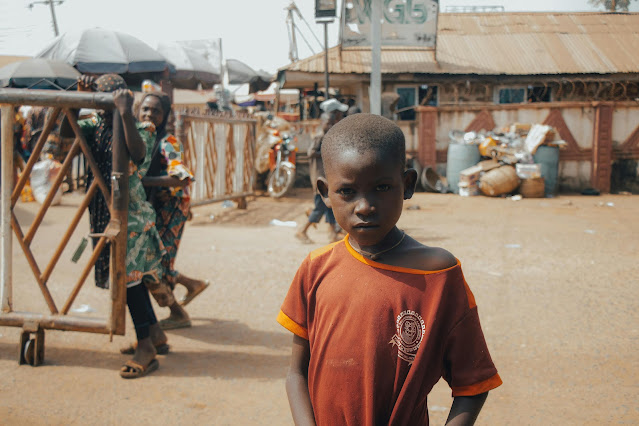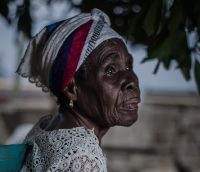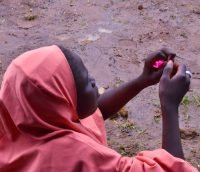 Photo by Adedire Abiodun on Pexels
Photo by Adedire Abiodun on Pexels
By Adetayo Adetokun
Today, we remember the people of Africa and beyond, whose lives have been marred by the relentless scourge of insurgency and terrorism. Our hearts turn to Nigeria, where the shadow of Boko Haram has loomed large, leaving destruction and grief in its wake. We mourn for the grieving families in Mali, Burkina Faso, and Niger, who bury their children far too soon as terrorism tightens its grip across the Sahel.
We remember Somalia, where decades of conflict under the terror of Al-Shabaab have left communities in a constant state of fear and displacement. We honor the people of Libya, whose dreams of stability have been shattered by ongoing civil war and insurgency, and Mozambique’s Cabo Delgado, where the horrors inflicted by militants have devastated countless lives. We extend our thoughts to the Democratic Republic of Congo, where protracted violence has left countless dead and displaced, to Chad, where conflicts have deepened existing vulnerabilities, to Cameroon, where regional tensions have escalated into violence, and to Sudan, where conflict and political upheaval have overshadowed hopes for peace.
This grief extends beyond Africa’s borders to black communities around the world who endure similar strife. In the Caribbean, historical exploitation and ongoing socio-economic disparities fuel unrest and inequality. In Brazil, Afro-Brazilian communities face systemic violence and economic marginalization. In the United States, systemic racism and violence have deeply scarred black communities, manifesting in a continuous struggle for justice and equality.
In the United Kingdom and other European countries, African diaspora communities grapple with discrimination and socio-economic challenges. These global black communities share a common thread of suffering and resilience, highlighting an interconnected struggle for justice, peace, and equality.
The suffering experienced across these nations and communities is rooted in complex and entrenched issues. The legacy of colonialism has left enduring divisions and conflicts. Political instability and weak governance have eroded trust and hindered effective crisis responses. Poverty, driven by systemic inequities and lack of opportunities, fuels desperation and vulnerability. Corruption undermines genuine reform and peace efforts. These issues are mirrored in black communities worldwide, where historical injustices and contemporary inequalities perpetuate cycles of suffering and violence.
Yet, amidst these crises, there is profound hope. Across Africa and the global black diaspora, peacebuilders and activists rise with extraordinary courage and dedication. In Africa, organizations such as the African Union’s Peace and Security Department, local non-governmental organizations (NGOs), and grassroots groups work tirelessly to mediate conflicts, support displaced communities, and foster dialogue and reconciliation. Their efforts, often undertaken under difficult conditions, are a testament to their commitment to peace.
Similarly, globally, activists and organizations work tirelessly to address systemic racism and inequality. Efforts by groups such as Black Lives Matter, the African American Policy Forum, and various international advocacy organizations strive to combat racial injustice and promote equity. Their work in advocating for policy changes, raising awareness, and supporting affected communities is crucial in addressing broader struggles.
Our role in this collective effort is clear. We must advocate for policies that tackle the root causes of conflict—poverty, inequality, and corruption. Support for sustainable development, education, and economic opportunities can help address these underlying issues. Investing in community-based programs that promote social cohesion and conflict resolution is vital for building lasting peace. International support should be directed toward strengthening institutions, promoting good governance, and ensuring accountability.
Moreover, we must actively engage in and support peacebuilding initiatives. This means amplifying the voices of those working on the ground, providing financial and logistical support to peacebuilding organizations, and participating in dialogue and advocacy efforts. By standing in solidarity with those who work to end conflict and build peace, we contribute to a broader movement towards stability and harmony.
On the International Day of Peace, let us commit ourselves to be active participants in the pursuit of peace. Let us honor the memories of those who have suffered and lost their lives by working towards a future where peace is not a distant dream but a tangible reality for all. The path to peace is fraught with challenges, but with wisdom, compassion, and collective effort, we can overcome these obstacles.
Let us celebrate the resilience and bravery of peacebuilders who, despite immense odds, strive to mend the fabric of their societies. Their dedication serves as a beacon of hope for a continent and global community yearning for stability. As we reflect on the progress made and the work still to be done, let us pledge to support and champion the cause of peace everywhere. Together, we can stitch the wounds of conflict and build a future where harmony and justice prevail.





